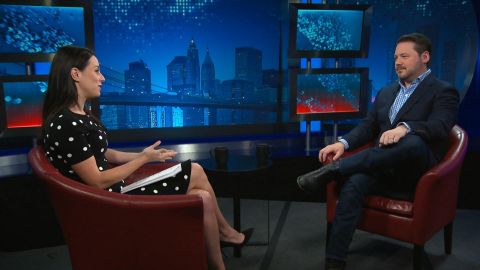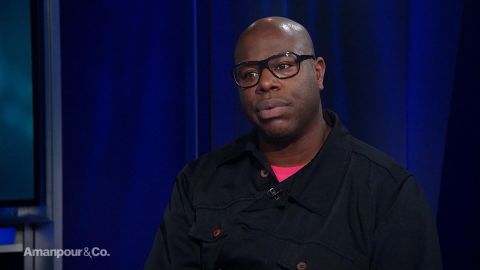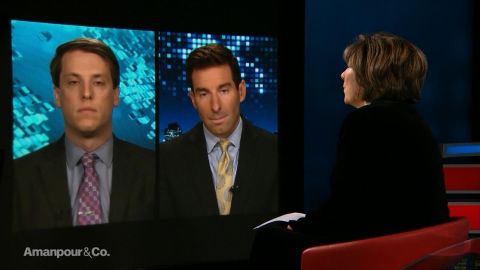Read Transcript EXPAND
AMANPOUR: So, tell me about “Widows.” It’s written by Lynda La Plant, right? And it’s an old, old series.
MCQUEEN: Yes. It’s (INAUDIBLE) old, April 1983. Again, lying on my mother’s carpet, hands propping up my head. And it was one of those that came on TV and it was just — it just locked in between the eyes in a way because it’s people who being deemed has not been capable, people who are being judged on their appearance. And somehow, I sort of saw myself in them. That gaze was being put on me. And these were heroes that I can identify with.
AMANPOUR: That is really interesting because that — I was going to say, it’s very out of type because it’s not “12 Years a Slave,” it’s not “Shame,” it’s not “Hunger,” it’s a thriller, heist. But I think the commonality is you saw it as you, you saw people who were looked at as the other.
MCQUEEN: Totally. I mean, I’ve been (ph) different because, again, it’s just — I mean, I used to project myself onto the people like Sean Connery playing 007 or Johnny Weissmuller playing Tarzan, and, you know, with these heroes, I understood them in a way that I never understood those two examples, and they just register with me, how they sort of, you know, insist and navigate and transcended and putting his head all these stereotypes in order to get what they wanted.
AMANPOUR: So, let’s talk about the heroes, because, frankly, it is a — you could call it a very feminist movie. I mean, the widows are the heroes.
MCQUEEN: I don’t know about feminist movie. I mean, you know, again, I’m — feminism for me is normal, you know —
AMANPOUR: It just means equality, let’s face it.
MCQUEEN: Well, that’s it, exactly. So, again, it’s this whole idea of feminist because majority of people all the heroes are women, it’s just hopefully entertaining, good movie whose main protagonists are women, end of story.
AMANPOUR: But very, very, very strong women in a very, very male world of heists and murder and double crossing and triple Crossing. And Viola Davis, who is the star of your movie, Ronnie, Veronica, right.
MCQUEEN: Yes, yes.
AMANPOUR: She has given an amazing speech but she also basically said, you know, “We always feel less than, you know, we feel like the prey. We always feel the boot of male influence and power. That’s what #MeToo and Time’s Up is all about. This movie is a realistic journey into women gaining ownership of their lives.
MCQUEEN: Well, first of all, I don’t — I mean, women are strong regardless. There’s no strong woman, they’re just women who are always strong. I mean, I’m not even trying to wave a flag here, just there is no differentiation for me. Anyway, what’s interesting about, for me, this movie and the narrative, I’m trying to sort of deliver in a way, is people’s journeys and lives, I mean, using these four women and each individual person is — a certain part of their lives
About This Episode EXPAND
Christiane Amanpour speaks with Garrett Graff & Elie Honig about what the latest bombshells mean for the President; and director Steve McQueen about his latest film, “Widows.” Alicia Menendez speaks with Ben Domenech, Co-founder and Publisher of The Federalist, about turning his back on the Republican Party.
LEARN MORE


